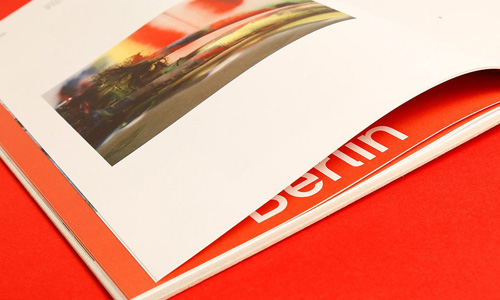雅思写作中复合句的正确使用方式
来源:济南朗阁雅思培训学校 时间:2024-03-11
复合句在雅思写作中占据着重要的地位,它能够使文章的语言更加丰富多样,表达更加准确清晰。然而,许多考生在使用复合句时常常会出现一些错误。那么,究竟应该如何正确使用复合句呢?接下来,就让我们一起学习一下吧!
一、 复合句的种类
英语的复合句一般分为三大类型:名词性从句、形容词性从句和副词性从句。
(一) 名词性从句
在整个复合句中起名词作用,充当主语、宾语、表语和同位语等的各种从句,统称为名词性从句。名词性从句主要有以下几种:
1. that 引导的从句 e.g. It is reported that one third of Guangzhou citizens plan
to buy a private car. (据报道,三分之一的广州市民打算购买私家车。)
2. whether/if 引导的从句 e.g. Whether motorcycles should be banned in Guangzhou
has become an issue of controversy.(广州是否禁摩托车成了有争议的话题。)
3. how/why/when/where引导的从句 e.g. This essay aims to explore why so many
white collar workers suffer from insomnia. (本文将探讨为什么这么多白领失眠的原因。)
4. who/whom/whose/what/which引导的从句 e.g. Who should be responsible for the
environmental degradation is still unknown.(谁对环境恶化负责还不清楚。)
(二) 形容词性从句
具有形容词功能,在复合句中做定语的从句被称之为形容词性从句或定语从句。被修饰的名词、词组或代词被称为先行词。形容词性从句分为两种类型:
(1)由关系代词 who, whom, whose, that, which, as引导的从句。 例如: People who are
strongly against human cloning claim that it is immoral and unethical.
(强烈反对克隆人的人们认为这样做不道德和不合伦理)
雅思写作常见的语法错误归类
一、不一致
所谓不一致不光指主谓不一致,还包括了数的不一致、时态不一致以及代词不一致等。比如:When one have money, he can do
what he want to.
分析:one是第三人称单数,因此本句的have应改为has; want应改为wants, 本句是典型的主谓不一致。
改为:When one has money, he can do what he wants (to do).
二、修饰语错位
英语与汉语不同,同一个修饰语置于句子不同的位置,句子的含义可能引起变化。对于这一点考生们往往没有引起足够的重视,因而造成了不必要的误解。比如:I
believe I can do it well and I will better know the world outside the
campus.
分析:better位置不当,应置于句末。
三、句子不完整
在口语中,交际双方可借助手势语气上下文等,不完整的句子完全可以被理解。可是书面语就不同了,句子结构不完整会令意思表达不清,这种情况常常在主句写完以后,作者又想加些补充说明时发生。比如:There
are many ways to know the society. For example by TV, radio, newspaper and so
on.
分析:本句后半部分"For example by TV, radio, newspaper and so
on.”不是一个完整的句子,仅为一些不连贯的词语,不能独立成句。

改为:There are many ways to know society, for example, by TV, radio, and
newspaper.
四、悬垂修饰语
所谓悬垂修饰语是指句首的短语与后面句子的逻辑关系混乱不清。比如:At the age of ten, my grandfather died.
这句中"at the age of ten"只写出十岁时,但没有说明“谁”十岁时,按一般推理不可能是my grandfather,
如果我们把这个悬垂修饰语改得明确一点,读者或考官在读句子时就不会误解了。
改为:When I was ten, my grandfather died.
五、词性误用
“词性误用”常表现为:介词当动词用;形容词当副词用;名词当动词用等。比如:None can negative the importance of
money.
分析:negative系形容词,误作动词。
改为:None can deny the importance of money.
六、指代不清
指代不清主要讲的是代词与被指代的人或物关系不清,或者先后所用的代词不一致。比如:Mary was friendly to my sister
because she wanted her to be her bridesmaid.
读完上面这一句话,读者无法明确地判断两位姑娘中谁将结婚,谁将当伴娘。如果我们把易于引起误解的代词所指代的对象加以明确,意思就一目了然了。这个句子可改为:Mary
was friendly to my sister because she wanted my sister to be her bridesmaid.
七、不间断句子
这个错误的出现受中文意识的影响很大。很多考生在写句子时,句子之间缺乏有效的连接成分。甚至,有的句子写的比较中式化。比如:There are many
ways we get to know the outside world.
分析:这个句子包含了两层完整的意思:“there are many ways”以及“we get to know the outside
world”。简单地把它们连在一起就不妥当了。
改为:There are many ways for us to learn about the outside world. 或:There are
many ways through which we can become acquainted with the outside world.
八、措词毛病
学生在写作中没有养成良好的推敲,斟酌句子中所选用词的习惯。大部分考生随心所欲,拿来就用,所以作文中用词不当的错误随处可见。比如:The
increasing use of chemical obstacles in agriculture also makes pollution.
分析:显然,考生把obstacles“障碍”,“障碍物”误作substance“物质”了。另外“the increasing
use(不断增加的使用)”应改为“abusive use(滥用)”。
改为:The abusive use of chemical substances in agriculture also causes/leads
to pollution.
九、累赘
写句子没有一个多余的词;写段落没有一个无必要的句子。能用单词的不用词组;能用词组的不用从句或句子。比如:In spite of the fact
that he is lazy, I like him.
本句的“the fact that he is lazy”系同谓语从句,我们按照上述“能用词组的不用从句”可以改为:In spite of his
laziness, I like him.
比如:For the people who are diligent and kind, money is just the thing to be
used to buy the thing they need.
整个句子可以大大简化为:Diligent people use money only to buy what they need.
十、不连贯
不连贯是指一个句子前言不对后语,或是结构上不畅通,这也是考生常犯的毛病。比如:The fresh water, it is the most
important things of the earth.
分析:the fresh water与逗号后的it不连贯,it与things在数方面不一致。
新闻资讯
2026-03-01

2026-03-01

2026-03-01

2025-09-30

2025-09-29

2025-09-29

2025-09-28

2025-09-28

2025-09-27

2025-09-27

热门问答
Copyright © 郑州为学信息技术有限公司版权所有 豫ICP备2022015557号 Powered by 乐问乐学
